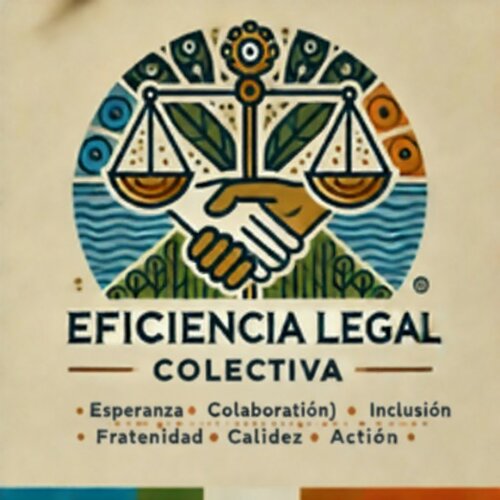Best Civil Rights Lawyers in Mexico City
Share your needs with us, get contacted by law firms.
Free. Takes 2 min.
List of the best lawyers in Mexico City, Mexico
About Civil Rights Law in Mexico City, Mexico
Civil Rights Law in Mexico City, Mexico protects individuals from discrimination and ensures their fundamental rights are upheld. It encompasses various areas such as freedom of expression, privacy, and equality before the law.
Why You May Need a Lawyer
You may need a lawyer specializing in Civil Rights in Mexico City if you find yourself in situations such as:
- Discrimination at work or in public places
- Violation of your privacy rights
- Unlawful arrests or police misconduct
- Denial of access to basic services due to discrimination
- Violation of your freedom of expression or assembly
Local Laws Overview
While there are federal laws in place to protect civil rights, Mexico City has additional regulations that are particularly relevant. Some key aspects include:
- The Mexico City Constitution explicitly states that discrimination in any form is prohibited.
- Mexico City has its own Human Rights Commission that investigates complaints of human rights violations.
- The Law to Prevent Discrimination prohibits discriminatory practices in both the public and private sectors.
- Mexico City has implemented specific measures to protect the rights of indigenous peoples.
Frequently Asked Questions
Q1: What should I do if I experience discrimination in Mexico City?
A1: If you experience discrimination, gather evidence, document the incident, and consider filing a complaint with the Mexico City Human Rights Commission or seeking legal advice.
Q2: Can I file a civil rights lawsuit in Mexico City?
A2: Yes, you can file a civil rights lawsuit in Mexico City if your rights have been violated. Consult with a Civil Rights lawyer to understand the legal process and your options.
Q3: Are there protections for LGBTQ+ rights in Mexico City?
A3: Yes, Mexico City has specific laws prohibiting discrimination based on sexual orientation and gender identity. These laws protect LGBTQ+ individuals in various aspects of their lives.
Q4: What remedies are available if my civil rights are violated?
A4: If your civil rights are violated, you may be entitled to remedies such as compensation for damages, injunctions to halt ongoing violations, and the implementation of corrective measures to prevent future violations.
Q5: How long do I have to file a complaint regarding a civil rights violation?
A5: The time limit to file a complaint varies depending on the specific circumstances and the type of violation. It is crucial to consult with a lawyer promptly to determine the applicable deadlines.
Additional Resources
For additional information and assistance regarding Civil Rights in Mexico City, consider referring to these resources:
- Mexico City Human Rights Commission: www.cdhcm.org.mx
- National Council to Prevent Discrimination: www.conapred.org.mx
- Legal Aid Mexico: www.legalaidmx.org
Next Steps
If you believe your civil rights have been violated, it is essential to take the following steps:
- Gather evidence and document the incident(s) thoroughly.
- Contact a lawyer specializing in Civil Rights in Mexico City.
- File a complaint with the appropriate authorities or human rights organizations.
- Follow the legal process and consult with your lawyer at each step.
- Attend any necessary hearings or meetings and provide your lawyer with all relevant information.
Lawzana helps you find the best lawyers and law firms in Mexico City through a curated and pre-screened list of qualified legal professionals. Our platform offers rankings and detailed profiles of attorneys and law firms, allowing you to compare based on practice areas, including Civil Rights, experience, and client feedback.
Each profile includes a description of the firm's areas of practice, client reviews, team members and partners, year of establishment, spoken languages, office locations, contact information, social media presence, and any published articles or resources. Most firms on our platform speak English and are experienced in both local and international legal matters.
Get a quote from top-rated law firms in Mexico City, Mexico — quickly, securely, and without unnecessary hassle.
Disclaimer:
The information provided on this page is for general informational purposes only and does not constitute legal advice. While we strive to ensure the accuracy and relevance of the content, legal information may change over time, and interpretations of the law can vary. You should always consult with a qualified legal professional for advice specific to your situation.
We disclaim all liability for actions taken or not taken based on the content of this page. If you believe any information is incorrect or outdated, please contact us, and we will review and update it where appropriate.

















